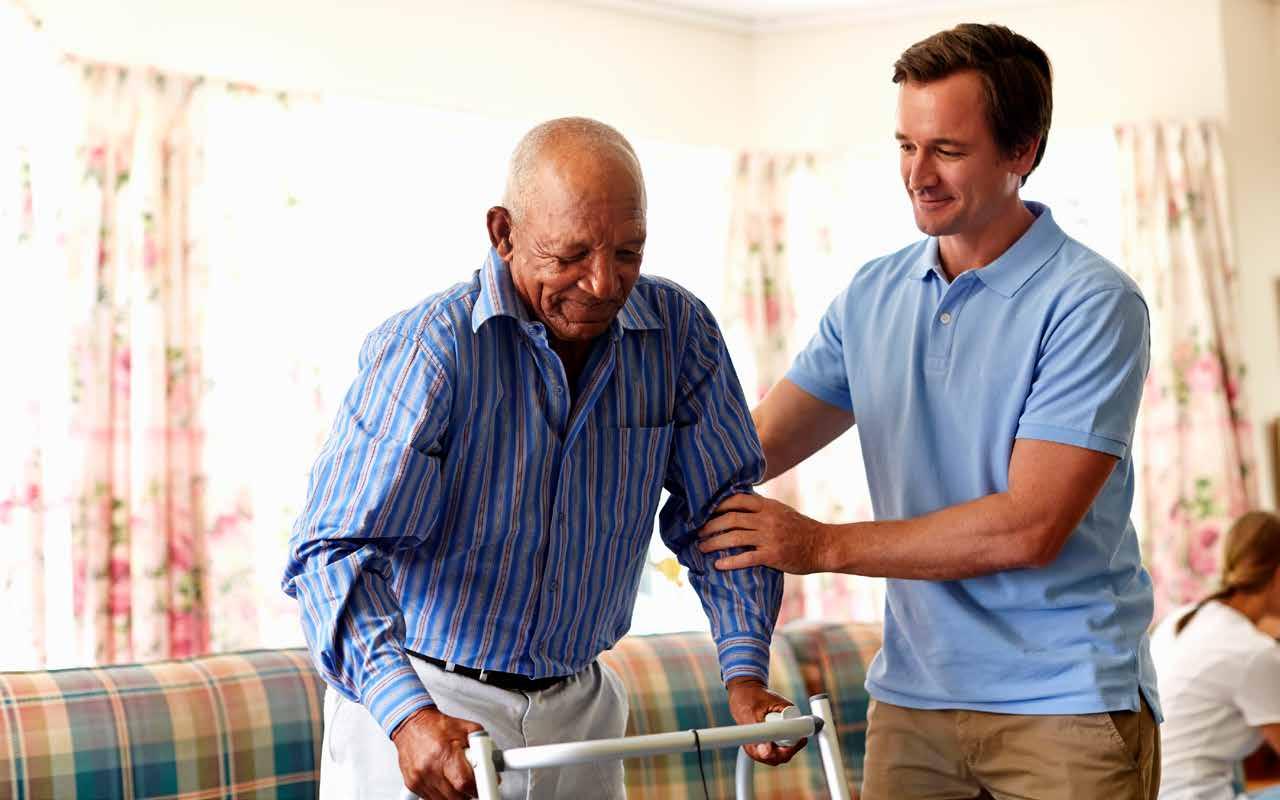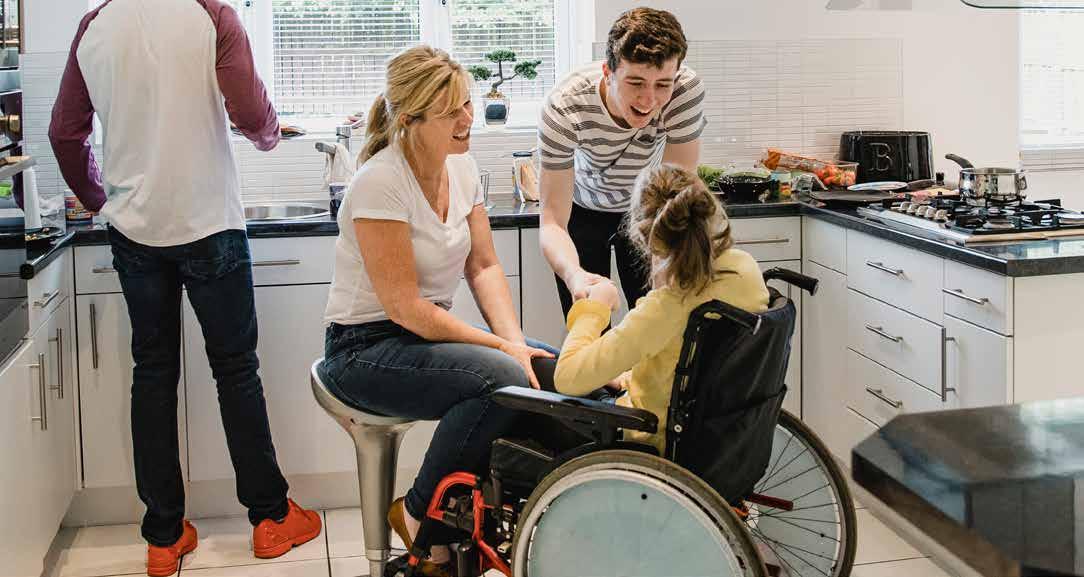
5 minute read
IN THE COMMUNITY
A JOURNEY OF CARE
Supporting caregivers in Nova Scotia
Advertisement
THERESE HENMAN-PHILLIPS, RSW
In November 2017, my father became ill and was eventually diagnosed with a form of dementia. Coming from a supportive family network, we rallied to try and provide the care he needed at home, eventually supporting a hospitalization and a journey towards long term care.
As a social worker for the past 35 years, I have prided myself on my ability to be resourceful. This was a system and experience I was unfamiliar with. It was personal.
Navigating the complicated health and long-term care systems, supporting my 82 year old mother in decision making while working full time and juggling family responsibilities as a working caregiver, left me mostly exhausted, discouraged, and emotionally barren.
My father died in March 2019. Although a difficult journey, I take pride in being one of his caregivers in his final years but it did come with costs personally and I know I am not alone.
In May 2019, two months after my father’s death, I discovered Caregivers Nova Scotia (CNS), a non-profit that, for over 20 years, has been dedicated to providing recognition as well as information, support, and education to unpaid family and friend caregivers. A little late maybe, but statistics would suggest there are many more care recipients in my family’s future! In September 2019, impressed and excited by the organization, I joined their ranks as an outreach coordinator. along the way. It’s a different perspective and role being the actual caregiver. I regret I wasn’t aware of this gem of an organization and able to receive their support during that difficult journey.
Caregivers Nova Scotia supports all caregivers who are looking after someone either at home or in a facility, regardless of the age, disease or the underlying health condition of their loved one.
Their programs and services are all free and include confidential phone and email support, monthly peer support groups across the province, information and health system navigation, and educational workshops. When facing challenges they advocate on behalf of caregivers. All of their employees have lived caregiving experience, a critical asset for understanding and peer support.
I often question why this resource wasn’t shared with our family during my father’s illness. At times, the caregiving journey with my father felt very fragmented despite the many kind, helpful professionals, and people we met along the way. It’s a different perspective and role being the actual caregiver. I regret I wasn’t aware of this gem of an organization and able to receive their support during that difficult journey.
My situation as a caregiver was not that unusual. Many Nova Scotians are providing care or help to someone with a long-term health condition, a physical or mental disability, or challenges related to aging. Unpaid caregivers are performing many essential tasks such as transportation, housework, home maintenance, scheduling and coordinating appointments, managing finances, and helping with personal and medical care. Often times, caregivers are doing this while caring for a family of their own, juggling employment, and other demands. Unpaid caregivers are an important resource for the care recipient supporting their comfort and safety, and allowing them to remain at home as long as possible.
The unpaid caregiver is also supporting society at large. Our population is aging, there are increasing health challenges and family systems have changed. We have scarce resources available to help caregivers perform this important and often invisible role. Unpaid caregivers fill a gap and support our healthcare system. In Nova Scotia alone, nearly 1 in 3 Nova Scotians or 32% of the population, higher than the national average based on the Statistics Canada 2012 General Social Survey on Caregiving and Care Receiving, identified themselves as caregivers. Those numbers are only expected to grow. Many people with chronic and/or acute health care challenges are dependent on their caregivers. Unpaid family/ friend caregivers in Nova Scotia spend an average of 12 hours each week helping others, the equivalent of 149 million hours of unpaid caring. Estimated conservatively, this resource saves the Nova Scotia Health Care System approximately 1.64 billion dollars each year.

While caregiving can be very positive, the demands of being a caregiver can and do have an impact on the caregiver’s physical, mental-emotional, and financial situation.
Even with a supportive family and employment situation, like most caregivers, I struggled. Anxiety, depression, sleep disturbances, health issues, loss of personal time, loss of friendships, changed family relationships, deferred life plans, loss of income or employment mobility are just a few of the consequences caregivers experience. Young caregivers, aged 15-29, who make up 18% of caregivers in NS are even more vulnerable and invisible, with their childhood, adolescence and young adulthood impacted by the demands of caregiving.
While there are some health condition specific organizations in the community that offer information and support to caregivers, many of their programs target the care recipient first. CNS and their programming target the caregivers and provide them with a safe space to discuss their challenges and successes and to share their frustrations.
Most caregivers are experiencing stress, isolation, and loneliness. While CNS does not replace professional help for identified difficulties, they are a support to assist with the burden and stress that can sometimes be associated with caregiving and potential burnout. Many times, so busy with the demands, caregivers neglect to take care of themselves. At CNS, the focus is on empowering caregivers, supporting their efforts, and recognizing the invaluable contribution they make both to those in need and to society in general. Whether one requires information, would like to talk to someone on the phone, or attend one of the peer support groups or educational workshops available across the province, the organization addresses and supports the caregiver’s need. That is the vision at CNS — that unpaid caregivers are recognized, valued, and fully supported as essential partners in care.

REFERENCES:
1. Info sheet December 2019 - Research on Aging, Policies and Practices (RAPP) and Caregivers Nova Scotia co created by Jacquie Eales, Choong Kim, Angus Campbell and Janet Fast based on analyses of Statistic Canada’s 2012 General Social Survey on Caregiving and Care Receiving
THERESE HENMAN-PHILLIPS (RSW) is a family caregiver herself, and is currently under contract with Caregivers Nova Scotia in the role of outreach coordinator.
If you would like to learn more about Caregivers Nova Scotia or require support, please visit caregiversns.org follow @CaregiversNS on social media, or call 1.877.488.7390.

